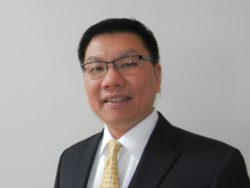
Dr. Jeremy Lin
PJM Interconnection
Friday, February 10, 2017
11:00AM – HEC 450
Abstract
The future grid will be proliferated with distributed energy resources (DES) which will be located at the distribution sys-tem and closer to the customers. Distributed energy storage systems (DESSs) are growing resources among DES. The benefits of DESS are many including enhancing grid performance by balancing generation and demand, reducing variability of renewable generation, managing peak demand and support of electric vehicles, all of which can help make the grid more resilient and reliable. The future grid will also be equipped with massive sensing and communication infra-structure. Therefore, the capabilities of the grid for measurement and control will improve significantly and large amount of data will be generated. Consequently, new data analytic algorithms and techniques will need to be developed to support for various decision makings in the future power system. Thus, designing distributed algorithms for controlling the different devices scattered in the power system becomes a big challenge. In this presentation, we will present the results of the development of agent-based distributed control design for distributed energy storages while convergence is guaranteed in the system. The control design was developed in such a way that the system is balanced and resilient even in the event that one of the agents was under cyber attack and the network system was unreliable. The results of this control design were validated on a distribution system that feeds power to a university on a large campus.
Biography
Dr. Jeremy Lin has more than seventeen years of experience in power system planning, operations and markets. He has extensive knowledge about industry restructuring and electricity market developments in the US. He also has significant experience in modeling, simulation, analysis of restructured electricity market, transmission system analysis, power flow analysis, and advanced computer technology applications to power system. He is currently affiliated with PJM Interconnection. Dr. Lin received his M.S.E.E. in power and energy systems from University of Illinois at Urbana-Champaign and Ph.D. in electric power engineering from Drexel University. He has published numerous publications in both top-ranked journals and conference proceedings. Currently, he has various collaborative research work with many researchers from domestic and international institutions. He is a senior member of IEEE.